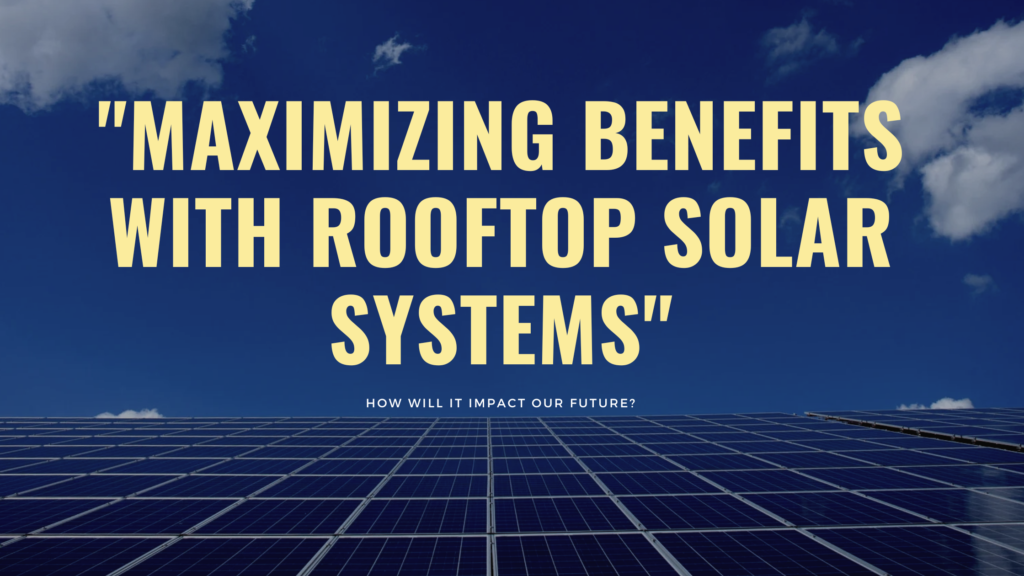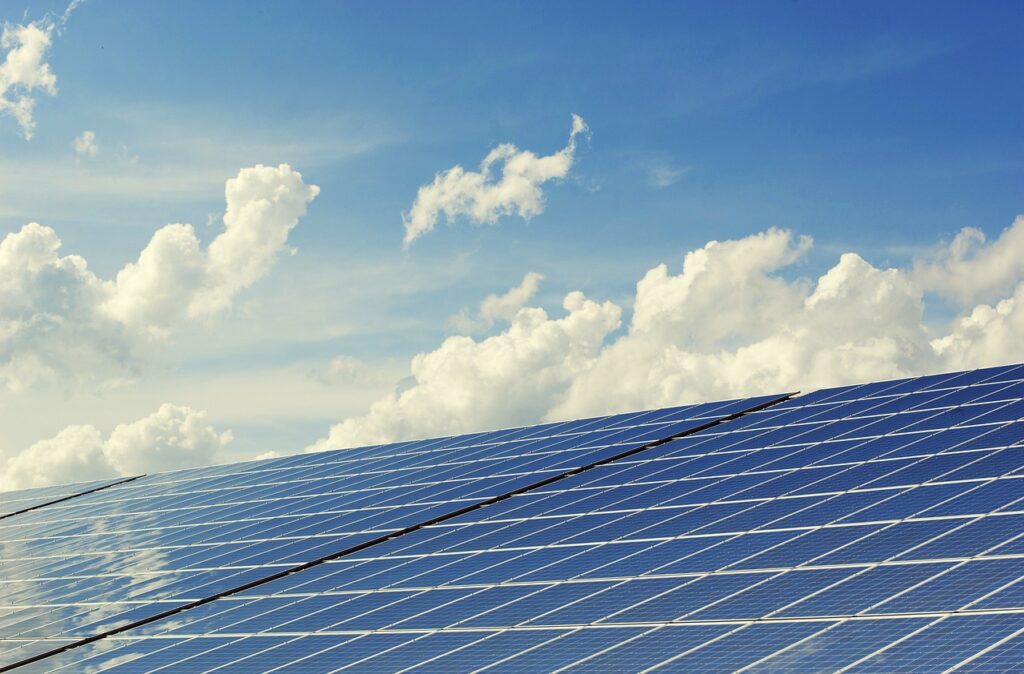"Top Benefits of Installing a Rooftop Solar System"
In recent years, the push for renewable energy sources has intensified, driven by the need to combat climate change and reduce dependence on fossil fuels. Among the various renewable energy solutions, rooftop solar systems have emerged as a popular and practical option for homeowners and businesses alike. By harnessing the power of the sun, these systems provide a clean, sustainable, and cost-effective source of electricity. This blog explores the top benefits of installing a rooftop solar system, highlighting why it is a smart investment for the future.
Introduction
The growing interest in sustainable energy solutions has led to significant advancements in solar technology. A rooftop solar system, which involves installing photovoltaic (PV) panels on the roof of a building, converts sunlight into electricity. This system not only helps reduce electricity bills but also contributes to environmental conservation by lowering carbon emissions. Additionally, many governments offer incentives and rebates to encourage the adoption of solar energy, making it an even more attractive option.
Cost Savings and Financial Benefits
One of the primary benefits of installing a rooftop solar system is the potential for substantial cost savings on electricity bills. By generating your own electricity, you can significantly reduce or even eliminate your dependence on the grid, leading to lower monthly utility costs. The initial investment in solar panels can be high, but the long-term savings typically outweigh the upfront costs. Most rooftop solar systems pay for themselves within 5 to 10 years through reduced energy bills.
Furthermore, excess electricity generated by your rooftop solar system can be fed back into the grid in many regions, earning you credits or payments through net metering programs. This means that during periods when your system produces more electricity than you need, you can effectively “sell” the surplus to your utility company, further offsetting your costs.
Environmental Impact
Installing a rooftop solar system is a significant step towards reducing your carbon footprint. Traditional electricity generation relies heavily on fossil fuels such as coal, natural gas, and oil, which release harmful greenhouse gases into the atmosphere. Solar power, on the other hand, is a clean and renewable energy source that produces no emissions during operation.
By switching to a rooftop solar system, you are directly contributing to the reduction of air pollution and the mitigation of climate change. The average residential solar panel system can offset several tons of carbon dioxide emissions each year, equivalent to planting hundreds of trees annually. This positive environmental impact makes solar energy a crucial component in the global effort to create a more sustainable future.
Energy Independence and Reliability
Rooftop solar systems provide a level of energy independence that is not achievable with traditional energy sources. By generating your own electricity, you are less vulnerable to power outages and fluctuations in energy prices. This reliability is especially valuable in regions prone to frequent blackouts or where the electricity supply is unstable.
Solar energy also offers predictability in terms of costs. While utility rates can be unpredictable and subject to increases, the cost of solar energy remains relatively stable. Once your rooftop solar system is installed, you can enjoy predictable energy costs for the lifespan of the system, which typically ranges from 25 to 30 years.
Increased Property Value
Homes and buildings equipped with rooftop solar systems often see an increase in property value. Potential buyers recognize the long-term savings and environmental benefits associated with solar energy, making solar-equipped properties more attractive. According to various studies, homes with solar installations tend to sell faster and at higher prices compared to those without.
The increased property value can also be attributed to the reduced operating costs that come with solar energy. Prospective buyers are often willing to pay a premium for a home that promises lower utility bills and a smaller carbon footprint. This added value can be a significant advantage if you decide to sell your property in the future.
Government Incentives and Rebates
Many governments around the world offer incentives and rebates to promote the adoption of solar energy. These financial incentives can significantly reduce the initial cost of installing a rooftop solar system, making it more accessible to a broader range of homeowners and businesses. Common incentives include tax credits, grants, and rebates that can cover a substantial portion of the installation costs.
For example, in the United States, the federal Investment Tax Credit (ITC) allows homeowners to deduct a percentage of their solar installation costs from their federal taxes. Various states and local governments also offer additional incentives, further enhancing the affordability of solar energy. These programs are designed to encourage the transition to renewable energy sources and help achieve national and international climate goals.
Low Maintenance and Longevity
Rooftop solar systems require minimal maintenance once installed. The most crucial maintenance task is keeping the solar panels clean and free of debris, which can usually be accomplished with a simple rinse or light cleaning. Most solar panels come with warranties that last 20 to 25 years, and they are designed to withstand various weather conditions, including rain, snow, and hail.
Inverters, which are essential components of the solar system, may need to be replaced after 10 to 15 years, but this is a relatively straightforward process. Overall, the durability and low maintenance requirements of rooftop solar systems make them a hassle-free investment that continues to provide benefits for decades.
Job Creation and Economic Growth
The solar industry is a significant driver of job creation and economic growth. As more homeowners and businesses install rooftop solar systems, the demand for skilled workers in the solar sector increases. This includes jobs in manufacturing, installation, maintenance, and sales. By investing in solar energy, you are supporting the growth of a vital industry that contributes to local and national economies.
Additionally, the expansion of the solar industry can lead to technological advancements and economies of scale, further driving down the cost of solar installations. This creates a positive feedback loop that makes solar energy more accessible and affordable for everyone.
Conclusion
The benefits of installing a rooftop solar system are numerous and far-reaching. From significant cost savings and increased property value to environmental conservation and energy independence, solar energy offers a compelling case for adoption. With the added advantages of government incentives, low maintenance requirements, and the potential for economic growth, there has never been a better time to invest in solar power.
As the world continues to grapple with the challenges of climate change and energy security, rooftop solar systems provide a practical and effective solution. By making the switch to solar energy, you are not only securing a sustainable future for yourself but also contributing to a healthier planet for generations to come. Whether you are a homeowner looking to reduce your utility bills or a business owner seeking to enhance your green credentials, a rooftop solar system is a wise and impactful investment.


